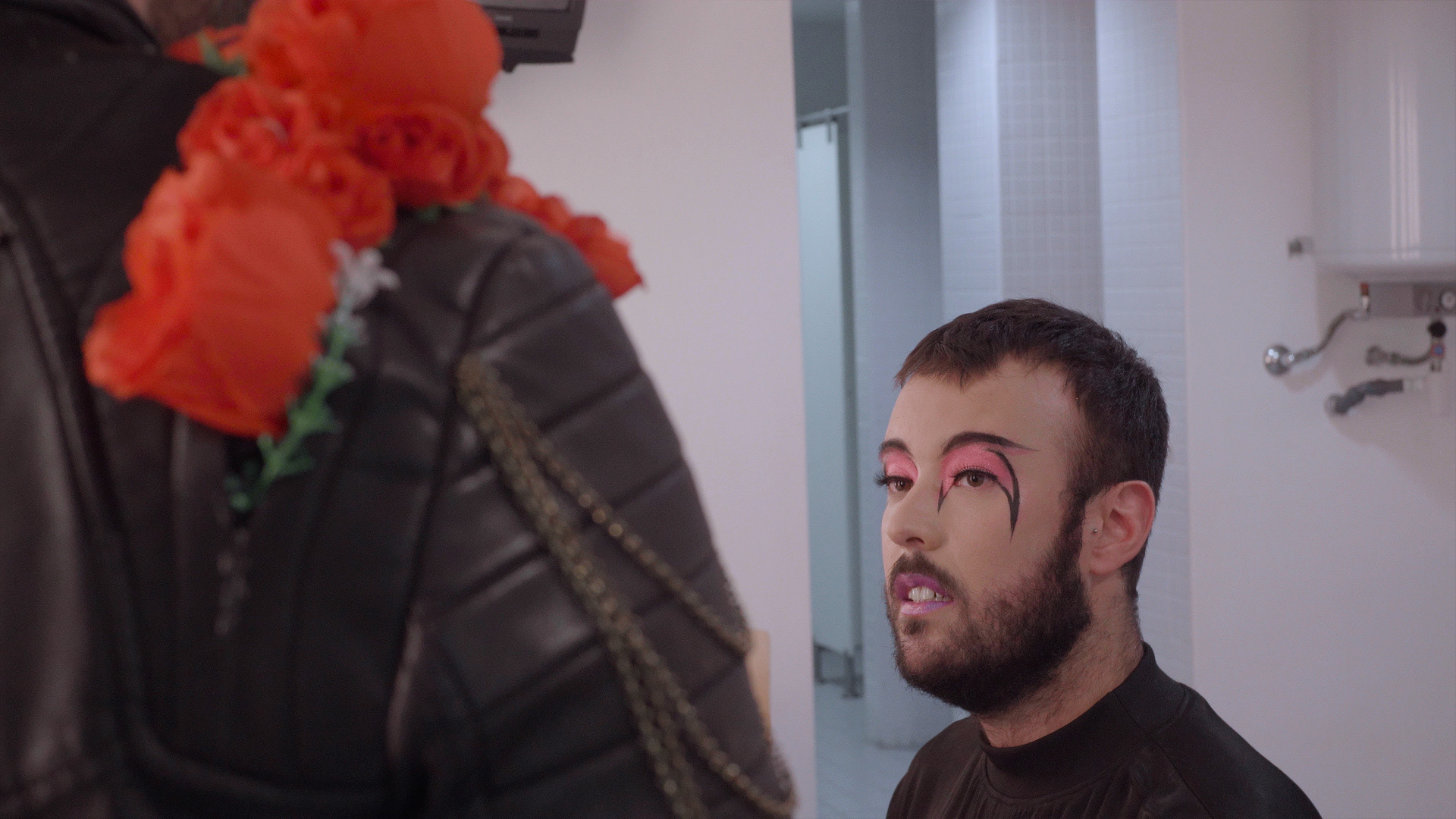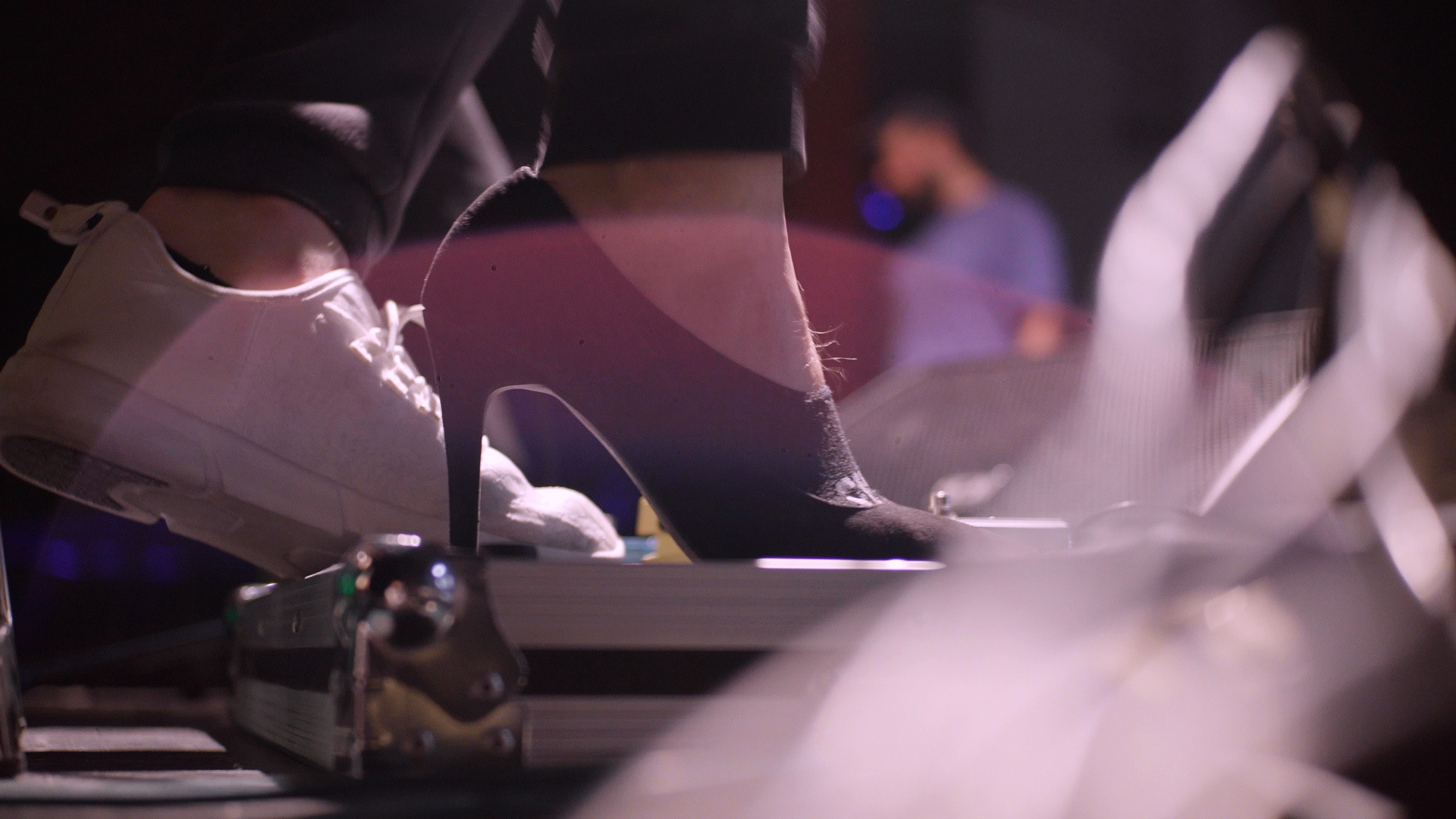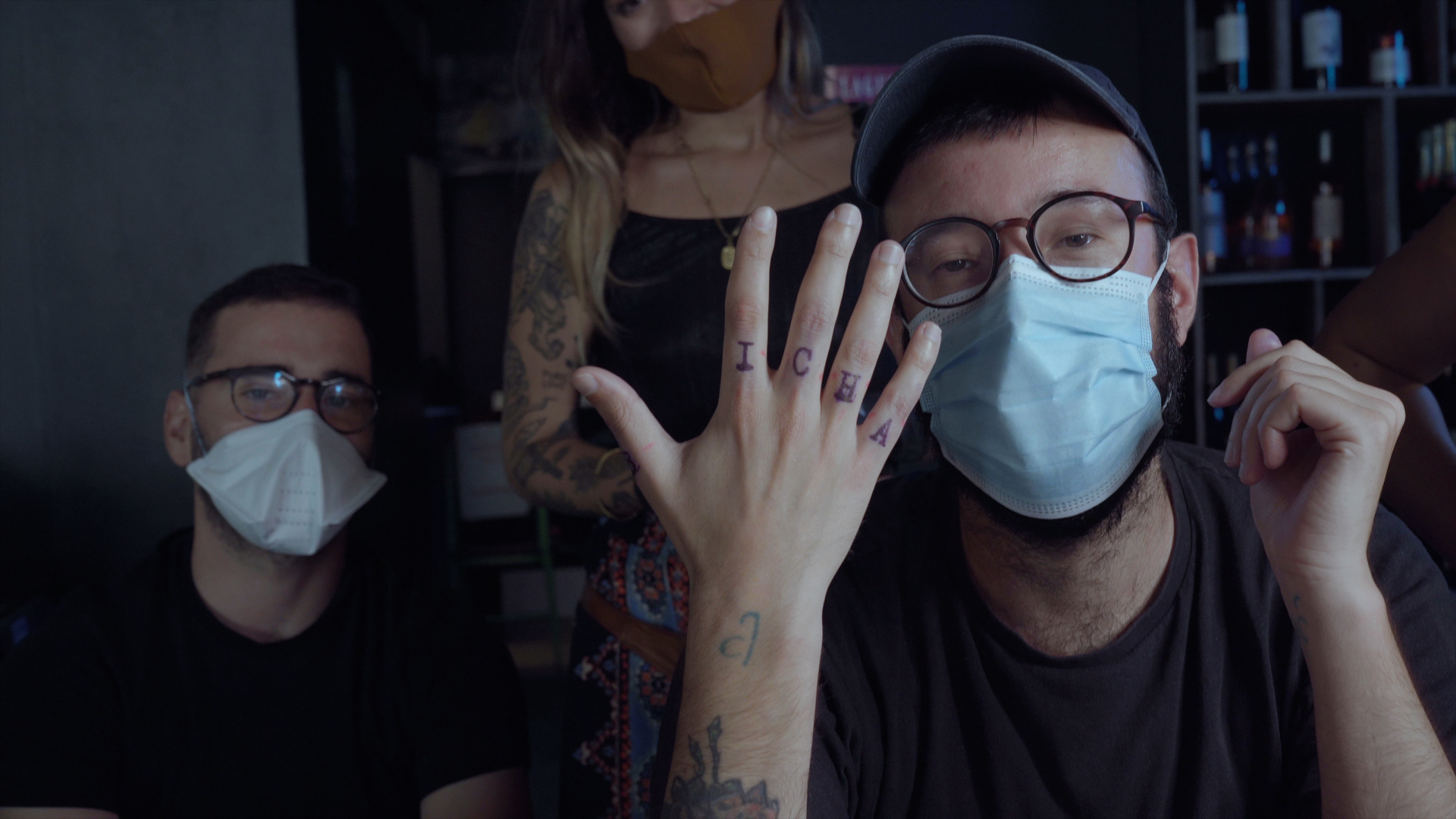Set against the backdrop of a traditional Portuguese society, Fado Bicha (trans)forms heteronormative Fado music into a queer labyrinth of self-acceptance and self-expression. By reclaiming the scars that homophobia and transphobia have given them, Fado Bicha exposes what Fado music could have been if society were more accepting.




CAST & CREW
Director
Erin Macpherson
Cast
Fado Bicha | Lila Tiago | João Caçador
Cinematographer
Erin Macpherson
Sound Recordist
Andreea Udrea | Atanur Nabiyeva
Antonio Wallace | Santwana Bayaskar
Selasie Djameh
Editor
Erin Macpherson
Sound Mix
Colour Grading
Erin Macpherson
Translators
Andreea Udrea |
Anna Sofia Meyer França
Clara Choupina | Luís Dias
SPECIFICATIONS
Project Type
Documentary Short
Genre
Portrait Film | Drama | LGBTQ+
Runtime
12 min
Country of Origin
Portugal | Belgium | Hungary | South Africa
Language
Portuguese | English
Shooting Format
Digital
Aspect Ratio
16:9
Film Colour
Colour
World Premiere
DocLisboa, Portugal
Release Year
2022
Produced in association with the Joint M.F.A. programme, Doc Nomads
REVIEWS
MAGAZINE.HD (Maggie Silva)
Over several months, Erin Macpherson, a South African artist, accompanied the Fado Bicha on the road. This small university short, extremely well conceived and tender, films part of a magnetic performance of the Fado Bicha, as well as the process of preparation in the backstage and, above all, gives voice to the vocalist Lila Fadista, who speaks about the struggle for self-affirmation and self-acceptance that has marked her so much throughout her life.
Praise is the feeling of belonging that Erin Macpherson manages to achieve, not being a Portuguese person or who finds themselves involved in the process of positive reappropriation of the fado that is achieved by the Fado Bicha. If Fado is not inherent in his culture, the struggles of the LGBTIQA+ community undoubtedly run through his veins and, therefore, "It's not Fado, it's Fado Bicha" is a short film that transpires complicity.
Heteronormativity is here set aside, projecting what Fado could (and can) be, was (or will be) the most open, inclusive and queer friendly Portuguese society. The energy transmitted by this work takes us to a territory where homophobia and transphobia no longer have a stage.
If we had something to point to "It's not Fado, it's Fado Bicha", it would undoubtedly be the fact that this short film ends badly we begin to feel immersed in the universe of the filmic subject. Too short for its own good, the film actually makes itself feel like the university project that is, no matter how well achieved it is. We wanted more of this immersion and positivity.